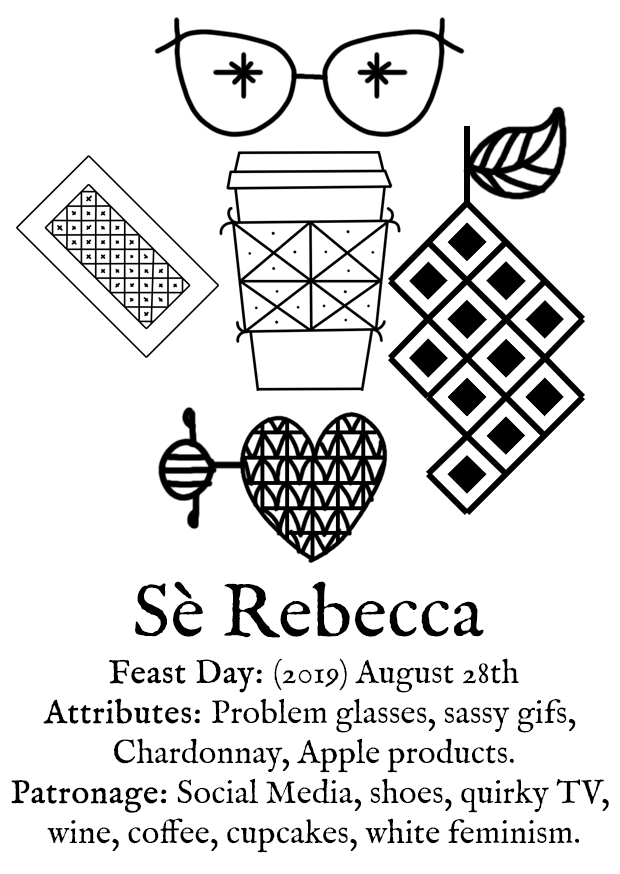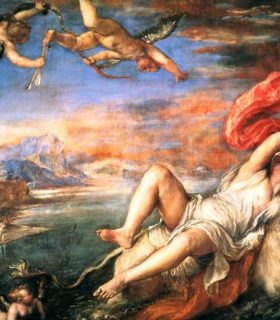We live in a post-spiritual age. The legs have been cut out from under religious-spiritual beliefs by science, and the belief systems that keep going are akin to headless chickens. They run along, still pumping their legs without realising that they’re already dead. Yet at the same time, there seems to be a craving, a desire, a demand for meaning and ‘spiritual’ practice. This demand exists across all political, social, and national lines. It persists, regardless of whether the meaning is remotely true.
At the same time, we have constructed our own ‘spirit world’ in the shape of the Internet. Where ritual magicians of the past would try (and fail) to summon a steed from Shax, 44th Spirit and Marquize of Hell, we make an offering of electricity and money to summon a steed from Uber. Where animists would imbue objects and animals with spirits of good and evil, we fit them with computer chips that gather information and imbue them with a crude kind of intelligence. Some to serve us better, others to report back to their wicked masters on our homes, habits, and product vulnerabilities.
The Internet ‘spirit world’ is more intense and fast-moving than the real world. It is a realm of the hyper-real where transgressions are punished instantly, fortunes can be made and lost, and magick can be wrought using ritualised technological praxis and secret codes. Where a love philtre or a magical doll might be empowered with your love’s hair or nails to create a sympathetic link, now your ‘digital wake’ can be hoovered up to provide insights to your private thoughts and desires, and even to potentially manipulate society on a grand scale.
Are our thoughts and emotions our own? Are they being manipulated by Grand Magus Zuckerburg through his world-spanning rituals? Is it excusable because it is being used for the crude and prosaic purpose of selling us crap, or is it being used for more sinister and impactful purposes than that? Do we even care? Is this a case of ‘give me convenience or give me death’? How many of us bother to secure our data on social media or refuse cookies when given the choice?
Additionally, we see this reflected in the new social media witch-hunts. The wild and free Internet of yore, in all its debauched, lawless, pagan glory, is being torn down and replaced by the monotheistic titans of Facebook and Google. They will bend all their might toward eradicating the old gods of freedom and privacy, as well as preventing the rising of new ones that might challenge their dominance or breach the bubble of the curated Internet they offer.
What we have is a desire for meaning or purpose and a hyper-real spirit realm that occupies the digital space between.
Enter the idea of ‘ideological possession’, a compelling concept that an ideology might take hold of someone and animate them like a puppet, taking control of them and turning them into someone else. A cordyceps fungus on the informational plane, turning people into mental zombies and vectors of infection.
I suspect we’ve all seen it, even if we might not necessarily recognise it in ourselves if we suffer from it. It’s much more obvious in the religious sense, as we know unreasoning religious fanaticism if we see it. Ideological possession seems to be a somewhat cagier beast than religious fanaticism. It can catch us by surprise when someone we’ve known since our school days suddenly casts us out into the void for our insufficiently woke take on punching ‘Nazis’, or when sweet old Great Aunt Gladys suddenly rotates her head a hundred and eighty degrees, vomits up her mashed potatoes and drops the N-bomb over Christmas dinner.
Is this really possession though?
Possession conjures thoughts of The Exorcist, of the loss of control, of someone being replaced by something else. It suggests a spiritual corruption, a consequence of sin or wickedness. This is why religions worked so hard to stamp out heresies or even the slightest interest in the esoteric. Whether that was Catharism or—in more recent years —Harry Potter, the only real progress we’ve made is that our murder rate has decreased. In this context, the new sins, the new ‘imperiling of one’s soul‘, is to listen to bad/wrong people on YouTube and to get ‘radicalised’ into the wrong version of the two New Churches. Heaven forefend you spurn both, because in either case they can tolerate the devil, but not something beyond their theology.
Possession is a one-way deal, yet ideological possession doesn’t seem to be. In possession, only the demon gets something out of it. This does not describe the phenomenon of social media tribes providing favours and power, nor the Faustian bargains we make with companies like Google.
People don’t generally invite possession.
They do invite the Loa, they get ridden by them.

Vodou is a novel religion, syncretic, mixing old tribal beliefs with historically dominant Catholicism (in much the same way European paganism fused with Christianity there as a survival mechanism). It is intimately tied with relatively small immigrant and post-slavery communities, all of which increases its relevance to the fractured and novel nature of the new social landscape in the digital space.
Vodou’s possession is invited, it is part of a ‘deal’. These colourful and fascinating intermediary spirits communicate for the more distant gods of good and evil with the people in the real world. They have character, they have desires, they are relatable, and they offer boons and advice in exchange for offerings and opportunities to ‘mount’ a host.
Baron Samedi is the most familiar, the loa of the dead, associated with drunkenness and debauchery as much as tombs and graves. He is positively associated with healing and the removal of curses. He longs for and accepts sacrifices of the vices that make life enjoyable —rum, tobacco and the freedom that transgression through obscenity can bring. Everyone knows him from his depictions in popular culture, rambunctious, jovial and sinister. He is dapper in his burial clothes, top hat, and skull face paint. He is death as a friend and confidante and a watcher over the graves of your departed relatives.
More relevant to us, perhaps is Papa Legbe, who could easily be the loa of the Internet. He stands at the crossroads of the spirit realm, facilitates the communication between these spirits and humanity, speaks every language, and smooths out these very channels of communication. The only fly in the ointment there is that he’s associated with dogs, not cats.
These archetypes aren’t real, of course, but they are representative of forces and ideas that are at work in the real world, as well as in the realm of ideas. There are plentiful archetypes associated with our ersatz technological spirit realm (the noosphere) as well.
Have you never met a Becky or an Edgelord? Is your life mercifully free of Soyboys and Beta Orbiters? Never so much as seen a hint of an E-Thot or a Woke Ally?
Then you’re lucky indeed.
These archetypes exist, even if a pure, real form of them does not. They’re representations of certain kinds of social or ideological possession, yet it’s less like possession and more like being ridden by a loa. There are gains to be had from giving yourself over to these loa, from saying the right words, and from making the right offerings, and adopting the right identities. If you want to keep those wonderful gains you have to remain pure, and you have to keep saying and doing the right thing without interruption.
Ideological possession is more of a trade. An exchange for likes, for follows, for money, for fame, for pussy, for dick, for a tribe to call your own, and for influence. All it will cost you is your friends, your sense of proportion, and a portion of your own mind for the loa to squat in.
What a bargain!
James ‘Grim’ Desborough is the Video Guy at Trigger Warning and a rapidly ageing gothabilly. He is also an eminent atheist and libertine who spends his time writing, editing, and designing analogue games.


